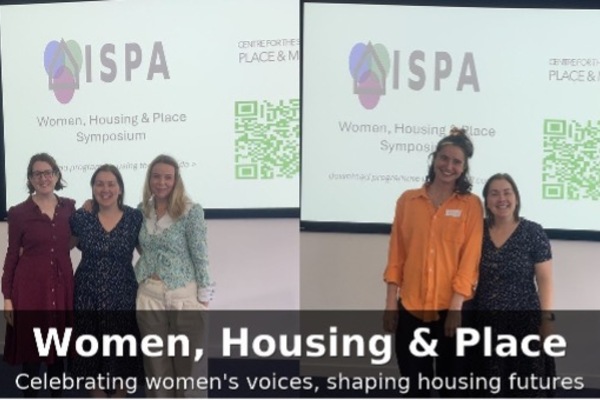
Dora Welker is a PhD student looking at domestic abuse and homelessness; in particular, the role of sanctuary scheme provision in England and Scotland. In her second year at Heriot-Watt University, Dora’s blog outlines preliminary findings from the beginning of her research.
1/4 adult women in England and Wales have experienced domestic abuse[1], roughly 1/20 women and 1/100 men in England have experienced extensive physical and sexual abuse[2], and an average of over 90 women are killed by (ex) partners in England and Wales in one year[3]. For many survivors, the reality of domestic abuse is closely linked with poverty[4]. Understandably, housing problems, and sometimes homelessness, are also frequent and pervasive; survivors may need to flee homes where the perpetrator resides in order to be safe, or they may lose housing following loss of employment or evictions, due to abuse. When those fleeing cannot find adequate housing, they may be forced to choose between becoming homeless, or returning to an abusive partner. If homeless, women may face even higher rates of victimization. The takeaway? Housing really matters – it is a crucial resource by which domestic abuse prevalence can be tackled.
My early stage PhD project, on which I had to opportunity of presenting at the 2018 HSA conference as an Early Career Researcher, seeks to address some aspects of the interlinkage between domestic abuse and housing, specifically by looking at a unique type of intervention – ‘sanctuary schemes’. Such schemes aim to minimize disruption for survivors and their families by helping them keep and stay safe in their current housing, by enhancing the physical security of the home once the perpetrator is out of the house. While the sanctuary scheme approach has been in use, particularly in England, since the early 2000s, surprisingly little academic research has evaluated such programs – the gap in knowledge that my PhD seeks to in part fill.
My aim is to better understand how frequently sanctuary scheme-type programs are used in Scotland and in England, and what the implications of this are for women fleeing domestic abuse. The questions I seek to answer include: how conducive is the environment for sanctuary scheme-type programs in Scotland versus in England; how are decisions made at the organization level on whether or not to invest in sanctuary scheme-type services; what are the strengths and weaknesses of sanctuary scheme-type programs for survivors of domestic abuse; and finally, how do the debates around sanctuary scheme-type provisions fit within larger debates about deinstitutionalization?
To address these questions, I started my fieldwork with key informant interviews done with national experts in the areas of areas of government, women’s aid, homelessness, and domestic abuse and housing. These interviews have been enlightening, fascinating, and a privilege to collect, and even at an early stage, are highlighting central themes. Perhaps the most poignant for me has been the idea of ‘choice and control’ – survivors of domestic abuse need to be given both: a range of interventions from which to pick from, based on what they feel is right for them; and the agency to make these choices for themselves and their families. I look forward to sharing further results at the 2019 HSA conference and continuing the conversation around these important issues.
[1] Fahmy, E., Williamson, E., & Pantazis, C. (2016). Evidence and policy review : Domestic violence and poverty. Retrieved from https://research-information.bristol.ac.uk/files/80376377/JRF_DV_POVERTY_REPORT_FINAL_COPY_.pdf
[2] Scott, S., & MacManus, S. (2016). Hidden hurt. Violence, abuse and disadvantage in the lives of women. https://doi.org/10.1017/CBO9781107415324.004
[3] Office for National Statistics (2015) Focus on violent crime and sexual offences: 2013/14. London: Office for National Statistics. Available here.
[4] Joseph Rowntree Foundation. (2016). UK Poverty: Causes, Costs and Solutions. https://doi.org/10.1017/CBO9781107415324.004; Fahmy, E., Williamson, E., & Pantazis, C. (2016). Evidence and policy review : Domestic violence and poverty. Retrieved from https://research-information.bristol.ac.uk/files/80376377/JRF_DV_POVERTY_REPORT_FINAL_COPY_.pdf








